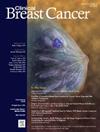Anesthetic Agents as Therapeutic Tools in Breast Cancer: Insights into Cancer Progression and Recurrence
IF 2.9
3区 医学
Q2 ONCOLOGY
引用次数: 0
Abstract
Breast cancer (BC) remains one of the leading causes of cancer-related mortality worldwide, necessitating continuous advancements in therapeutic strategies. While anesthetic agents are traditionally used for managing pain and sedation during BC surgeries, emerging evidence suggests their potential influence on cancer progression and recurrence. This comprehensive review examines the role of various anesthetic agents as therapeutic tools in BC, exploring the molecular mechanisms underlying their interaction with tumor biology. The review categorizes anesthetics into volatile, intravenous, and local agents, discussing their differential effects on cancer cell proliferation, immune modulation, and metastatic potential. Key findings indicate that volatile anesthetics such as sevoflurane and isoflurane may promote tumor progression, whereas intravenous anesthetics like propofol exhibit anticancer properties. Local anesthetics, particularly lidocaine, and bupivacaine, show promise through voltage-gated sodium channel (VGSC) blockade, while opioids have mixed effects, with tramadol being less favorable in cancer settings. Additionally, nonsteroidal anti-inflammatory drugs (NSAIDs) such as ketorolac and diclofenac have demonstrated potential in reducing BC recurrence, and regional anesthesia techniques like paravertebral blocks may provide immunomodulatory benefits. Clinical studies assessing the correlation between anesthetic choice and BC recurrence suggest that perioperative anesthetic strategies may impact circulating tumor cells and postoperative metastasis. However, most findings are derived from preclinical and retrospective studies, highlighting the need for large-scale prospective trials. Future research should focus on tailoring anesthetic regimens to tumor biology and patient-specific factors, integrating anesthetic pharmacology into cancer care to improve both immediate surgical outcomes and long-term prognosis. This article underscores the need for a paradigm shift in anesthetic use, positioning it as a crucial player in BC treatment strategies.
麻醉药物作为乳腺癌的治疗工具:对癌症进展和复发的见解。
乳腺癌(BC)仍然是世界范围内癌症相关死亡的主要原因之一,需要不断改进治疗策略。虽然麻醉药传统上用于治疗BC手术中的疼痛和镇静,但新出现的证据表明它们对癌症进展和复发的潜在影响。本文综述了各种麻醉药作为治疗工具在BC中的作用,探讨了它们与肿瘤生物学相互作用的分子机制。这篇综述将麻醉药分为挥发性、静脉注射和局部药物,讨论了它们对癌细胞增殖、免疫调节和转移潜力的不同影响。主要研究结果表明,挥发性麻醉剂如七氟醚和异氟醚可能促进肿瘤进展,而静脉麻醉剂如异丙酚则具有抗癌特性。局部麻醉剂,特别是利多卡因和布比卡因,通过电压门控钠通道(VGSC)阻断显示出希望,而阿片类药物具有混合效果,曲马多在癌症环境中不太有利。此外,非甾体类抗炎药(NSAIDs)如酮洛酸和双氯芬酸已被证明具有减少BC复发的潜力,椎旁阻滞等区域麻醉技术可能提供免疫调节益处。评估麻醉选择与BC复发之间相关性的临床研究表明,围手术期麻醉策略可能影响循环肿瘤细胞和术后转移。然而,大多数发现来自临床前和回顾性研究,强调了大规模前瞻性试验的必要性。未来的研究应侧重于根据肿瘤生物学和患者特异性因素定制麻醉方案,将麻醉药理学整合到癌症护理中,以改善即时手术效果和长期预后。这篇文章强调了麻醉使用模式转变的必要性,将其定位为BC治疗策略中的关键角色。
本文章由计算机程序翻译,如有差异,请以英文原文为准。
求助全文
约1分钟内获得全文
求助全文
来源期刊

Clinical breast cancer
医学-肿瘤学
CiteScore
5.40
自引率
3.20%
发文量
174
审稿时长
48 days
期刊介绍:
Clinical Breast Cancer is a peer-reviewed bimonthly journal that publishes original articles describing various aspects of clinical and translational research of breast cancer. Clinical Breast Cancer is devoted to articles on detection, diagnosis, prevention, and treatment of breast cancer. The main emphasis is on recent scientific developments in all areas related to breast cancer. Specific areas of interest include clinical research reports from various therapeutic modalities, cancer genetics, drug sensitivity and resistance, novel imaging, tumor genomics, biomarkers, and chemoprevention strategies.
 求助内容:
求助内容: 应助结果提醒方式:
应助结果提醒方式:


